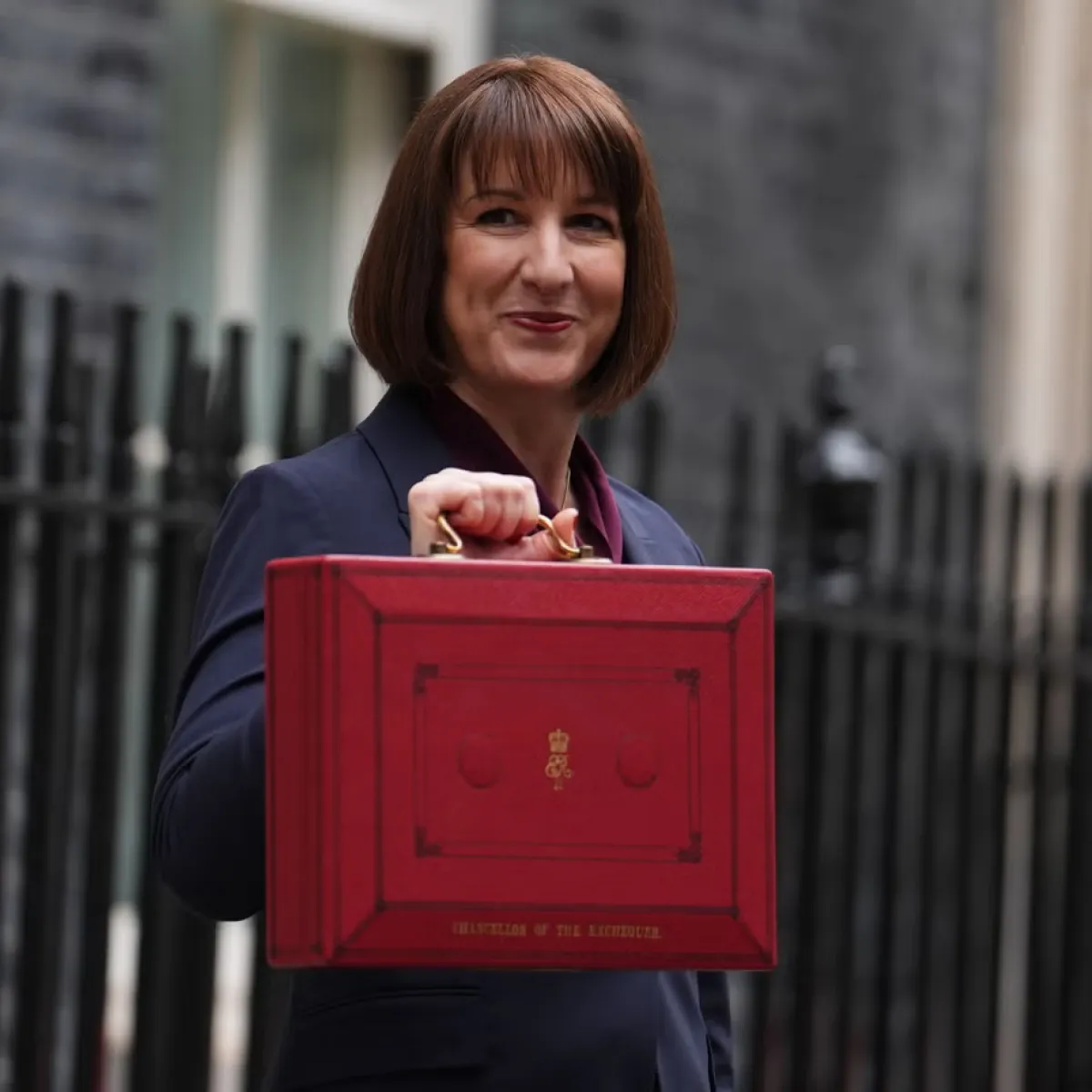This website uses cookies. Learn more
Woodford, the FCA and the Staley Effect
“Reputational resilience doesn’t come with short-term fixes. If you’re going to go around making cosmetic changes, it’s going to come back and bite you.”

(mis)Conduct, Money & Reputation
Podcast Series by Lansons and Katten. Welcome to your monthly dissection of misconduct in financial services, from the rules and regulations - to the reputational fallout when things go wrong. This podcast series is an essential listen for those in asset management (and more broadly financial services) who are responsible for the safeguarding of business and brand; from compliance and corporate affairs to comms and marketing.
Listen via Spotify & Apple Podcasts
Episode Background
E03: Woodford, the FCA and the Staley Effect
Woodford’s appeal against a multimillion-pound FCA fine and ban is under the spotlight in this episode, with David Masters and Neil Robson asking what the tribunal could uncover - and whether his reputation can ever recover.
They examine how cosmetic fixes created only the illusion of liquidity, why the regulator called his understanding of his role “defective and unreasonably narrow,” and how the tribunal could reveal private emails, board minutes and correspondence that reshape the narrative - just as Jes Staley’s failed appeal did.
The conversation also explores whether defiance deepens reputational damage, what lessons the case offers for accountability and transparency, and how AI is beginning to change the way regulators and firms confront misconduct.
**
This podcast contains discussions around sensitive topics, including sexual assault, abuse, and other potentially distressing subjects. Listener discretion is advised. If you or someone you know is affected by any of the issues raised, please consider seeking support from a trusted organisation or professional.
Episode Transcript
Podcast Narrator: This is misconduct, Money and Reputation, a podcast by reputation specialists Lansons and law firm Katten.
David Masters: Hello and welcome to the episode. This is our fourth episode in our second season for those working in financial services, particularly in and around asset and wealth management, where we delve into those areas where regulatory and reputational crises converge. For listener discretion, please be advised that some episodes do include sensitive and potentially distressing subject matters. My name is David Masters, Director and Asset Management lead at reputation consultancy, Lansons Team Farner.
Neil Robson: And I'm Neil Robson, regulatory compliance partner at international law firm, Katten.
David Masters: So welcome to the latest episode of (mis)Conduct, Money and Reputation. Today we are tackling the ‘W ‘word - Woodford. We did pick up on this a little in the first episode of this series when we were talking about Odey, but at that point we were still awaiting the FCA's judgement. Well, as we know, it finally arrived, and it wasn't good. However, it was met by a swift rebuttal and appeal from Mr. Woodford.
So today we are taking a gaze into the crystal ball and looking ahead to what might happen at that appeal. Although a very different type of case, Jess Staley's recent appeal against the FCA judgment on him proved disastrous, shredding what was left of his reputation following the revelation of the depth and longevity of his relationship with sex trafficker, Jeffrey Epstein and highlighting what could go wrong. And so, we decided to look at what might emerge during Woodford's appeal.
Neil Robson: And we've been aided today in our crystal ball gazing, having a look at what might happen in the future, aided by artificial intelligence, AI tools available to us, to evaluate the FCA's ruling on Woodford, what could happen there, explore the unravelling of the Staley appeal and therefore, to begin with, to try to put some structure to this analysis and allow us mere human beings to consider what might happen and what the implications would be when this appeal takes place for Woodford. So, David, do you want to kick us off perhaps?
David Masters: Yeah. Thanks, Neil. So just to just to summarize where we are now, so, Neil Woodford once the UK's most famous fund manager is facing an FCA penalty and ban. So, what the FCA is saying is that between July 2018 and June 2019, Woodford Investment Management, that is the synonymous fund management house run by Neil Woodford, sold more liquid assets and bought illiquid ones, which meant that just 8% of the fund was liquid when it came to be suspended, which is well below regulatory expectations. So, Woodford had at this point been the star stock picker, the best known and probably most highly regarded, star fund manager, and he's, he's plummeted from that to a symbol of mismanagement, having lost a lot of money for about 300,000 investors. At its peak Woodford’s fund was about 10 billion sterling under management and by the time of the suspension, it had fallen to around about 3.6 billion.
Now, the FCA fined Woodford 5.9 million and they fined his investment management firm 40 million, with a ban on managing retail funds. But what Woodford and Woodford Investment Management have done is appeal to the Upper Tribunal. So, Neil, what does appealing to the Upper Tribunal mean? And what should we take as being the implications of this appeal from Woodford?
Neil Robson: So, the way it works and kind of the process of the legal process, if you will, for an FCA appeal is that initially, Woodford and Woodford Investment Management received an initial warning notice from the FCA, where in the FCA proposes to the defendant that they're going to issue a warning notice and explain why the FCA thinks that they've done some wrong doing and what the FCA's proposal is. If the relevant individual or the firm doesn't like that they can make written or oral representations to the FCA's Independent Regulatory Decisions Committee, the RDC. If the RDC agrees with the FCA and not with the defendant or the person being investigated, it then issues a decision notice, and this decision notice details the FCA's reasons and its decision.
And it's at that point that actually the recipient can't withdraw their application. Just last month, August 2025, The RDC and the FCA issued their decision notice and the initial suggestion of a fine, as you said, which the FCA in fact has doubled their proposal is that this is such egregious, or indeed just asleep on the job type behaviour, that they've doubled the fine they were originally proposing for both Neil Woodford and Woodford Investment Management. So, in terms of next steps. they then have to appeal the RDC decision notice, and it's at that point that it then effectively leaves the FCA and it goes to the Upper Tribunal, which is the tax and chancery chamber. So, it's a proper court, it's fully independent of the FCA and effectively the FCA becomes the prosecuting party. And Neil Woodford, and separately Woodford Investment Management become defendants in the cases against them being pursued by the FCA for their enforcement. And when you talk about the upper tribunal being a court, so we're also talking about something, therefore that would have the standards of rigour applied that we would anticipate in any other public court.
Neil Robson: Absolutely. And in fact, this is exactly the same court process that Jes Staley went through with his disastrous appeal against his ban and the fines, etc., that the FCA had put in place against him because he lied to the FCA about his relationship with Epstein. So, as you say, very rigorous court litigation process that has to be followed here. Professional judge, you know, this is not the FCA making any of these decisions. It's somebody knowledgeable in the UK regulatory environment. FCA rules all the law relating to the activities being undertaken and the mismanagement effectively of the Woodford Fund, which the FCA is alleging that Neil Woodford knew about, or he was asleep on the job, he didn't do things properly.
So, if we break down the FCA's case here, as presented in the decision notice, so the FCA RDC notice, the FCA is saying that there was liquidity mismanagement and Woodford Investment Management encouraged unlisted, unquoted holdings to then get listed on the International Stock Exchange, the TISE, which is based in Guernsey. But even though they were listed on an international exchange, there was no real liquidity.
There was no actual trading in these shares, so that would be a liquidity mismanagement point. There was also a structural issue that the listings were used to be able to reclassify what is otherwise illiquid, so that they don't then count towards the UCITS 10% unlisted limit. So, a UCITS fund, which is what the Woodford fund here was, an Undertaking for the Collective Investment in Transferable Securities. That's the T of UCITS. There is a 10% limit on illiquid investments, non-easily transferable. So, by allowing certain illiquid investments to get listed or indeed encouraging them to get listed on the International Stock Exchange in Guernsey, that created the apparent position that they were in fact liquid because they were publicly listed.
So that essentially allowed the Woodford fund to make further investment in illiquid companies, because those that were listed on the TISE were therefore deemed to be liquid. So, it's a little bit of smoke and mirrors, but it did mean that the Woodford Fund was able to make a significant amount of investment in what would otherwise be deemed under the traditional rules, to be an illiquid investment, and therefore breaching the 10% limit.
David Masters: Yeah, and I'd just come back to a couple of these points because, it's interesting because Woodford, he isn't denying the facts of this case, I don't think. But what he is contesting is how they've interpreted it, and this made me think again of Jes Staley, who was really trying to argue to clear his name on a technicality. It does seem it's a little bit of the rules don't apply to us sort of mentality.
In that ‘oh no the regulator doesn't understand their own rules or the regulator didn't ask for the ask of the information the correct way’, which I think is sort of the implication of Staley. And just when you think about this from a reputational angle, you could argue that this is a little bit of form over substance, you know, with Woodford, investors were told that the liquidity was fine. It was all under control. But in reality, the fund holdings were becoming less and less liquid, therefore, harder to redeem, harder to sell.
And I think if you look at the language which the FCA has utilised here, it's quite interesting because they've said Woodford's understanding of his role was defective and unreasonably narrow. That's quite harsh. And I think the best case for that would make him just look negligent.
Neil Robson: At best.
David Masters: At best, yes. Woodford is now contesting the FCA's ruling in what is effectively a proper full-blooded court of law. What’s going to come out? What could come out in this appeal?
Neil Robson: Well, if we draw on sort of parallels that we've seen over the course of recent months with Jes Staley's, disastrous and unsuccessful appeal, we know that the tribunals can make previously private documents and testimony, they can make it very public indeed. In Staley's case, of course there was the email correspondence and various SEC documents, the US Securities and Exchange Commission, those all became headline news because reporters were pouring over this with great detail, given the interest in Epstein. But if we look into our AI generated crystal ball, and we look at Woodford's case and think about what are the likely areas of evidence that will come out here? And it's worth remembering that a litigation process like this, both sides will put together a list of documents that they require the other side to disclose to the court.
So, some of this will be stuff that they desperately don't want disclosed because it damages their case. Some of it will be stuff that they very much want to be disclosed publicly because it supports their case. That discovery process, as it's known, is very time consuming, and in a case like this is likely to involve tens of thousands of documents, emails, phone records, everything and anything that Woodford Investment Management had on their servers, all the records of this period of time, when illiquid investments became magically liquid by being listed on the International Stock Exchange.
David Masters: In theory.
Neil Robson: So, if we think about that first point, those listing applications and all the sponsor documents related to them, those will almost certainly be listed as part of the discovery process. And they could reveal if the listings were presented as a, inverted commas, ‘regulatory workaround’ perhaps, rather than actually a true liquidity solution. Obviously, there's going to be thousands of internal emails, there's going to be bored minutes, all the internal discussions, anything documented at Woodford Investment Management, whether the staff there and their risk committee in particular, which is a big point of the FCA's, whether they actually flagged the lack of genuine liquidity and how Neil Woodford himself even responded to that.
That could be very telling, and it could go one way or the other. There's going to be third party correspondence, which will establish whether or not they approved or objected to the listings of these various investments that the Woodford Fund was invested in. There's going to be information from the International Stock Exchange itself, because they'll be compelled by an English court. Guernsey is a Crown protectorate, but they'll be compelled to make disclosure as well. And they could confirm if there's the absence or presence indeed, of arm's length trades, that was referenced in the FCA's decision notice, but actually the raw data that is disclosed there could very much reinforce that narrative. And one element that might come out depending on the legal process are legal and advisor opinions. Legal advice is often protected by what we call legal professional privilege, so it may not be disclosable. But if Woodford Investment Management did rely on advice that the International Stock Exchange listings were satisfactory under UCITS rules, they might try and seek to have those publicly disclosed because it would actually help their case.
That remains to be seen, I think, but it's a possibility. But what will be disclosed would be the communication with the TISE and the Guernsey regulators overseeing it, which again, could show whether the listings were expected to generate real liquidity in those investments that were otherwise very difficult to cash out of.
David Masters: Yeah, the whole listing saga was very interesting because that was sort of played out live in the media, when these listings happened, it was something that the investment trade media was reporting on, I think even the FT picked up occasionally. It's interesting because it was felt that it was a bit of a workaround.
Neil Robson: Yeah. Let’s be frank, there’s been a few investment exchanges that over the years you would list something on to provide what appeared to be liquidity, but nobody ever traded it on that trading venue. So, the Gem exchange in Ireland was very similar. It's a proper bona fide, an investment exchange, but there was no liquidity, there was nothing traded on it particularly. So just because you had a listing didn't mean it was a freely tradable instrument. So yeah, there was some greyness and questionable ness to the TISE listings. And as you say, it was publicly played out, you know, in the media.
David Masters: But you would think that an experienced investment manager or the team around that manager would have an awareness that if you list a stock on a specific, illiquid exchange, that it's not actually going to have any material impact on the liquidity. So, then you've got this sort of duality between, well, it doesn't create any actual liquidity, but it only creates an appearance or a semblance of liquidity.
Neil Robson: Indeed.
David Masters: If was a judge, that would be quite an interesting question to be thinking about.
Neil Robson: Well, I think that's going to be a fundamental part of the tribunal case. And the FCA sort of prosecution position will be Neil Woodford must have known that this was smoke and mirrors, must have known because he was an experienced portfolio manager, he'd been around for decades, knew what he was doing, to suddenly say that these TISE listings were valid when he knew fully well there was no liquidity there. That's going to be a very strong part of their case, I think.
David Masters: Again, if we just think about where we are from a reputation perspective, it is that this is the potential smoking gun issue, isn't it? You know, that if they published internal WIM documents that show that there is an awareness that those listings were cosmetic? If that emerges, then that would be a bit like how the emails, Staley's emails destroyed his credibility, destroyed his defence. They would have the same impact on Woodford. But obviously if the opposite emerges that actually they had been advised by another party that this was legitimate or was an acceptable route, I don't think it would ameliorate it at all in any sort of material way, but it might soften it a little bit.
I don't think it offers any rehabilitation, but it might be able to, apportion some blame to some other parties involved in this. But it's I think it's important that we try and understand what the tribunal process is. I know you've talked a little bit about how it works, but are there other things we need to be thinking about?
Neil Robson: I think it's a good question to ask David, so that the tribunal process is not just a review of what has been already discussed between the FCA and Woodford and Woodford Investment Management. It's essentially a brand-new hearing of the case by an independent judge, completely impartial third party based on all the evidence, which can be brand new evidence that the FCA hasn't yet considered. So, it's going to be a heavily documentary process. As I say, this discovery process could be thousands and thousands of documents. Both sides are going to be compelled to disclose what the other side demands of them, and really, the key elements there are going to be the risk memos, lots of emails and correspondence. Is there something hiding in there? Liquidity data, it's going to be fact based in terms of the Case against Woodford and Woodford Investment Management, and that's going to be hard to overturn with assertions or just hearsay. It's got to be evidential.
And that's an interesting point because actually at the moment Woodford's position is much more an appeal based on his opinion. At the moment he's saying the regulator misunderstood Neil Woodford's role. They didn't understand what he was doing and that the fund's authorised corporate director, ACD or indeed the fund admin, was responsible for risk management and focusing on the liquidity. So, unless Neil Woodford can provide documentary support, like formal advice or approvals, then actually his chances are not looking great right now. And if we look at, again, recent other tribunal cases like Jes Staley and an appeal can actually often entrench rather than undo the reputational harm that individual is suffering.
Jes Staley ultimately, by playing out day by day in the media looked very foolish. Why did he appeal something where all this evidence came out that was far worse than the public even knew about to begin with. So, he kind of was the author of his own undoing, really in that scenario. And Woodford could potentially be the same here.
David Masters: It makes you wonder a little bit as to the rationale and the awareness that's behind that, because as you've rightly pointed out, Staley was on a reputational knife edge, and it went the wrong way.
Neil Robson: It was his own hubris. You know he 100% believed that he'd said all the right things when the evidence went the other way and destroyed his reputation publicly. So, yes, you're right.
David Masters: I think we said at the time with Staley, even before the tribunal ruling had come out, the appeal had done more damage to his reputation.
Neil Robson: Oh, for sure.
David Masters: Then if he had not appealed and I think that's potentially the same case here, in so far as the tribunal could lessen the punishment. They could reduce the fine or something, I guess. But I don't think that's going to have massive reputational impact. There is a narrative here that demonstrates negligence, arrogance that's deeply ingrained. I think it's much less about how Woodford regains trust and much more about whether there is further damage that this appeal might cause because I think we all know what will happen if some unflattering, unhelpful evidence emerges. I think that will become headline news very quickly. And so, I think what are we learning here? What is the sort of regulatory lessons that we can take away from this so far?
Neil Robson: Well, I think one of them, the most obvious one here, ultimately is going to be the importance of truly understanding where does the regulatory responsibility sit for managing a particular fund. So, this was a UK UCITS fund, so an investment company with variable capital, which has to have an Authorised Corporate Director, that ACD then delegates under an investment management agreement to the portfolio management company, this was Woodford Investment Management. Ultimately you can't always delegate responsibility. and the IMA, the Investment Management Agreement, is going to be critical, I think, for both sides in their arguments, in the sense of saying, “Well, it wasn't our responsibility to do the risk management that must have stayed with the ACD”.
But surely if you're a portfolio manager, you've got to understand the risks of the investments you're investing in for the fund. And that's a key point that the need for a really robust liquidity management framework and truly meaningful and not cosmetic compliance with the core rules, the UCITS rules is again going to be a fundamental learning that comes out of this. And another one which we've looked at this in the past, is transparency with the regulators. Silence or not objecting to something is not the same thing as an approval. And if you're a regulated individual, if you're a senior manager, if you're a certified staff member at a regulated firm, you have an obligation, a legal duty actually, for the senior managers to be open and cooperative with the regulators. That's baked into the rules. It's part and parcel of being in a regulated financial services institution. So, all of it, I think is going to be interesting. There's going to be some greyness coming out, but hopefully we'll get to some black and white, because that's ultimately what the whole point of the tribunal is that it reaches a final determination, which is not appealable at the end of it. So, David, perhaps if you could give us some thoughts in terms of what are the lessons that you think might come out of this in terms of managing reputation?
David Masters: Well, I think it comes back to something we've said a lot on the podcast, and that is ultimately reputation is defined much more by your behaviour than it is by your words. And I think here, I think we can see that reputational resilience doesn't come with short term fixes. If you're going to go around making cosmetic changes or do things from a cosmetic perspective that is going to come back and bite you or has the as the propensity to come back and bite you. And it is this inconsistency between what you say and what you do, which is where reputation often falls down.
Now, what we're seeing from Woodford here is this doubling down, this defiance, which you could argue is justified if that is what his genuine belief is. But I think from a reputational point of view, it does make recovery a lot more challenging, because it is that acknowledgement of responsibility, which is often the first step towards sort of rebuilding your credibility. It provides the ability for your audience to start to move on from this. And I think until Woodford admits some level of culpability with this, irrespective of what comes out of the tribunal hearing, it's going to be very difficult for his reputation really to move in anything like a vaguely positive manner.
I think the other thing here is, of course, is how we've used AI to help do the research to help structure this conversation. And I think that's the other thing we need to probably just talk a little bit about, isn't it? It's just what we're thinking about in terms of AI, how that impacts what you do from a from a law firm perspective and how it impacts what I do, but not just us. Also, the sort of actors around us, so regulators and lawmakers’, compliance functions as well. So, I don't know Neil if you have any thoughts about that.
Neil Robson: I do have a view and that's that AI is a tool. It's only as good as the person using it, number one. But it's also only as good as the data you feed into it. So ChatGPT of course, is the most widely known one, GPT there stands for Generative Pre-trained Transformer. Basically, it can take the information you feed into it, and it's trained as to how to judge what would come next if a human being was involved. So, it's essentially trying to predict what would come next. So, if you ask a series of questions, ChatGPT feeds on the data available on the internet but it also makes up of lots of things that are utter nonsense and ChatGPT, these AI cha, they don't know the difference between fact and fiction, So that's one really serious risk. So, for us in a law firm, we do use AI tools, not ChatGPT, and our systems are closed, so we don't use the internet and the information we feed into them is closed within, you know, the four virtual walls of our office. So, we can feed in client documents, we can use our own database, 20 or 30 years of documents or agreements of a particular nature.
And we can ask our AI tool, ours is called Harvey - he's very helpful. We can ask Harvey what typically would be this provision in this particular sense, what's the outcome been for all our clients over 30 years, if we do x, y, z? So again, it's a tool. But nonetheless, there has to be a human element where you check and there's a prime case that law firms always use, and that's that, there was a judge who used ChatGPT to write his judgment, and it found a case on the internet that wasn't real. So, the whole thing fell over horribly because it was based on a false positive.
David Masters: Was that also from an episode of Suits?
Neil Robson: It might well have been, a bit like Harvey. So yes, ultimately, it's a tool. It's helpful, particularly where there's a lot of documents, but it basically is an analytics tool, I think that ultimately pulling it all together, yes AI is helpful. It's been enormously helpful predicting, what could happen. But only once we get the Woodford case in court will we know and look back and be able to listen to this podcast again and go, were we right or were we not, right? Litigation takes a long time. We might not be looking till 2027, 2028, till this actually ends up at the tribunal. So, there's a long way to go just yet.
David Masters: It's fascinating. I mean, obviously we also have our own enterprise, AI tool, again it's a closed system. So, in terms of the information that we put into it doesn't go anywhere. But we have quite strict guardrails about the types of information. And obviously, all our client relationships are governed by contracts. And obviously we wouldn't do anything using AI that we were expressly forbidden to in a contract. And I think, like with you, it doesn't take away from the human element. Everything we do starts with people and ends with people. AI, we perceive as a tool.
Now, it's quite an interesting tool. Obviously, some of the things that you from a legal perspective are wary of, from a reputation perspective, some of that is interesting. And the variance between what is on the internet that is real and what is not real is, is an interesting area, because obviously some of that not real stuff does impact people's reputations. So being aware of that, being able to sort of scan to see where reputational threats might be emerging can be helpful. But again, you need the human factor to be able to decipher some of the analysis, you need that sort of experience, you need the sort of knowledge of the ability to differentiate between what is a real potential threat and what is, just something that's the AI has hallucinated or whatever. Nothing we do here, using AI would go direct to the client. It would always have to go via the team of that particular client.
But it is a useful tool. And I think we see that, but we see also the importance of guardrails and operational restrictions to ensure that we're using it wisely. Just thinking about it from an asset management and wealth management perspective, based on the research that I've seen people do, including some of our colleagues in the US, I don't think most retail investors are really in a situation yet where they’re willing to have active money managed purely by AI. I think lots of investors have gone down the passive route, the systematic or rules-based approach and some of some of that functionality may utilise AI to simplify or improve the existing processes. And I have worked with institutional managers who have had an element of AI or machine learning in some of their investment processes.
But that's really as far as you would want to commit. I think with AI we have to be very realistic about what it can achieve from an investing perspective and I think the reality is it is a tool. But what I think you need to avoid is that sort of overpromising AI capabilities, because overpromising/ overconfidence, we're coming back to Woodford, so I think that's really important.
Neil Robson: Woodford's case doesn't involve any personal scandal, but rather it's a question as to his professional judgment and his compliance with the rules. Ultimately the internal documents and the adviser correspondence and everything that does get disclosed during the tribunal case could significantly shift in some way or reshape the public perception of him. So, it really does remain to be seen quite where this is going to go.
David Masters: Yeah, I think the best-case scenario though is limited. You know, it may be about reducing personal liability. It may be about being able to shift some blame to other parties, but I still think that in terms of full reputational recovery that at this particular moment seems very unlikely. Just thinking about the scale of investor losses and the FCA's actual response. So, I think you're absolutely right, I think this is going to be a really challenging one and it could be a good couple of years before we get the actual tribunal.
Neil Robson: 2 or 3 is likely given the current timing's right.
David Masters: Great, thank you very much, Neil. That's all we have time for today. We'll be back next time, where we will be exploring other real-world cases where reputational and regulatory challenges converge in the world of asset and wealth management. I'm David Masters.
Neil Robson: And I'm Neil Robson.
David Masters: Thank you very much for listening.
Podcast Narrator: You've been listening to (mis)Conduct, Money and Reputation. Please do stay tuned for further episodes by subscribing on your favourite podcast app. You can find us by searching Lansons or Katten. This episode was recorded in the Lansons studios and brought to you by reputation specialists Lansons and law firm Katten. The content in this podcast is for informational purposes only. It does not constitute legal advice and is not intended to establish an attorney client relationship, nor is it intended to suggest standards of care applicable to attorneys in any given situation. This podcast is considered attorney advertising. Prior results do not guarantee a similar outcome. Any views, opinions or comments made by external guest speakers are not to be attributed to Katten Muchin Rosenman LLP, and or Katten Muchin Rosenman UK LLP, or their individual attorneys’ lawyers.
**
Disclaimer: The content in this podcast is for informational purposes only. It does not constitute legal advice and is not intended to establish an attorney-client relationship, nor is it intended to suggest standards of care applicable to attorneys in any given situation. This podcast is considered attorney advertising. Prior results do not guarantee a similar outcome. Any views, opinions or comments made by external guest speakers - are not to be attributed to Katten Muchin Rosenman LLP and/or Katten Muchin Rosenman UK LLP or their individual attorneys/lawyers. All rights reserved.
Stay in the loop with our experts




New Business: to find out how we can help you, contact our dedicated new businesss team consultancy@lansons.com
Careers: we’d love to hear from you, please visit our careers hub











